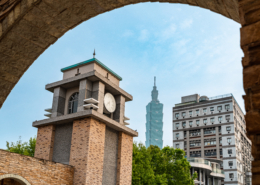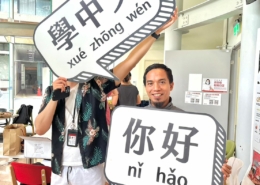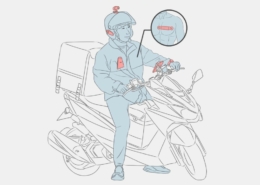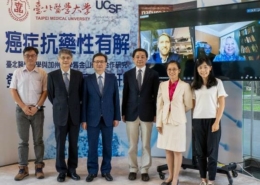Have a weekend and a good idea?
MIT-TMU Hackathon: where problems meet IT solutions
Health IoT (Internet of Things) Hackathon, 30 Sept.-2 Oct.
 What’s the fastest way to develop high-tech ideas to solve practical problems? Silicon Valley offers the “hackathon” model, where teams compete within a few days to nurture new ideas into reality.
What’s the fastest way to develop high-tech ideas to solve practical problems? Silicon Valley offers the “hackathon” model, where teams compete within a few days to nurture new ideas into reality.
Taipei Medical University recently squeezed a handful of new patent ideas out of a weekend of frenzied teamwork to win a handful of prizes ranging up to NT$80,000. The grand finale featured no less than Taipei Mayor Wen-Je Ko (himself a doctor-professor with the nickname “Ko P” for “Prof. Ko”) bestowing the prizes in a ceremony widely noted in Taiwan news media.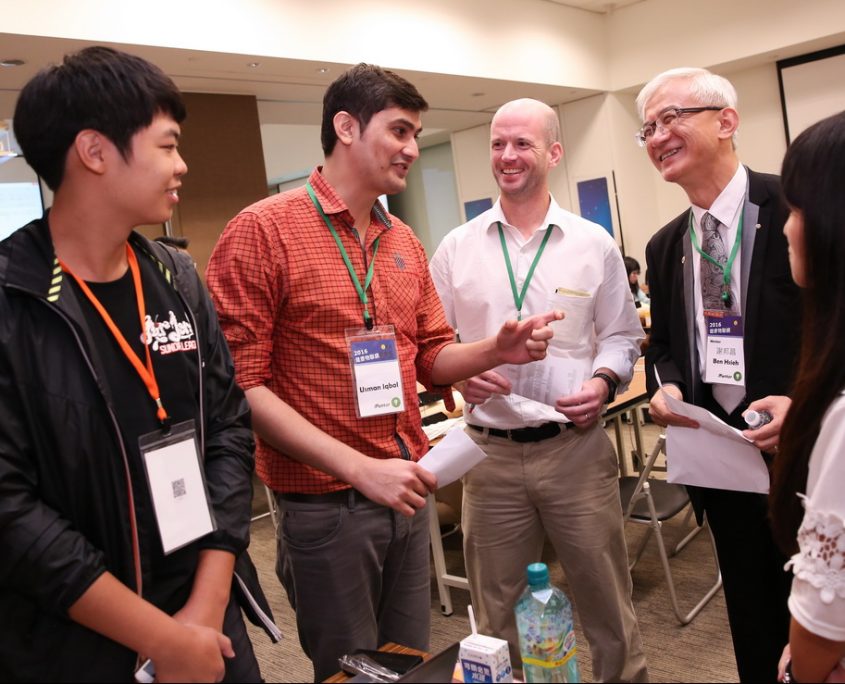
And each team had health professionals with problems plus IT experts, encouraged and advised by Physicians from Harvard, Massachusetts General hospital, Taipei Medical University Hospital and also physician scientists like Dr. Shabbir Syed-Abdul, TMU’s online course maestro (nearly 10,000 students have taken his TMU courses through the UK-based FutureLearn platform).
Dr. Syed-Abdul kindly joined a TMU journalism class to answer questions from students about this fast and exciting approach. He also detailed the event’s links to the other MIT: not “made in Taiwan” but the famed Massachusetts Institute of Technology, whose health outreach SANA program TMU has partnered with for years.
Known on campus as “Dr. Shabbir,” Syed-Abdul has for many years been a strong researcher for TMU’s Biomedical Informatics publishing hub, but he talked about nurturing dozens of teams with brand-new ideas that in a single weekend yielded patentable products.
To understand this, he explained the “internet of things” (IoT): the burgeoning field of devices and applications. The Hackathon focused on health problems, with each team bringing together a clinical or other expert who experience the need, and one or more IT specialists who could bring new ideas for a solution to that need.
The event’s specific focus on wearable devices takes the lead from his current FutureLearn course on high-tech solutions for problems affecting older adults. And the stakes were high: an NT$80,000 prize went to the top team, with five other prizes for categories and runners-up. Some eighteen expert judges scored each project on a scale of 1-5 for innovation, value and feasibility or practicality.
Dr. Syed-Abdul said at least 3 patents are foreseen from ideas like an app that can relate the color of urine to possible diagnosis, and a device that can help busy emergency rooms keep track of vulnerable patients. A heart-warming project called “iShareFood” locates edible resources while they are still at peak freshness and puts this information on a widely accessible network for nonprofit groups.
For interviews or a copy of the paper, contact Office of Global Engagement via global.initiatives@tmu.edu.tw.

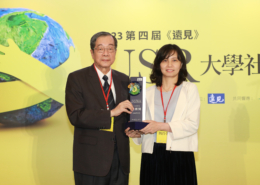
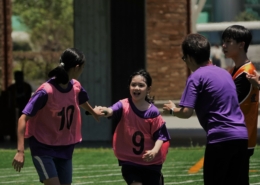
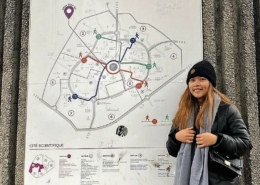

期許永續發展成為醫療產業新契機。-260x185.jpg)
